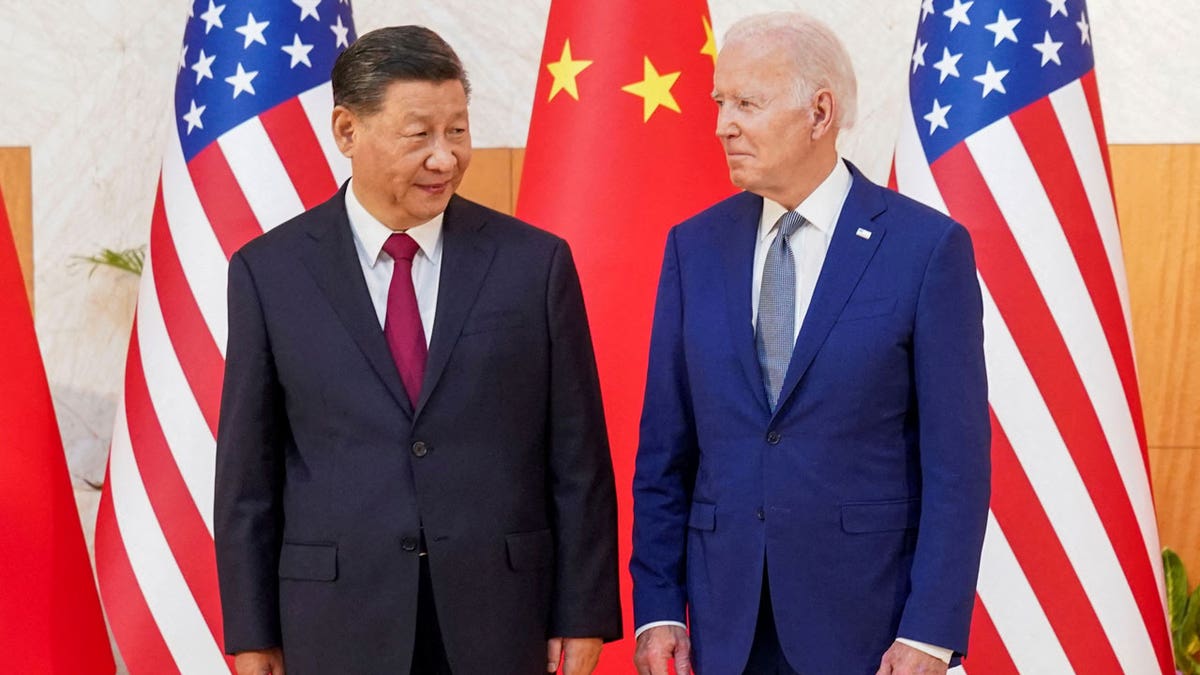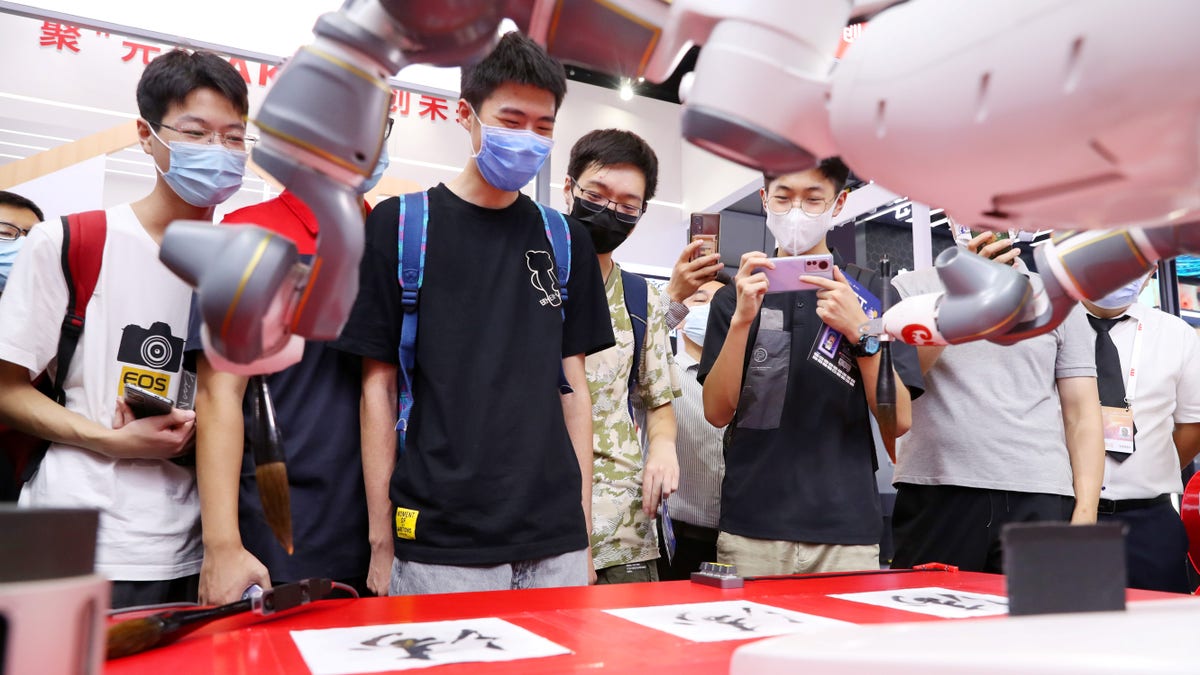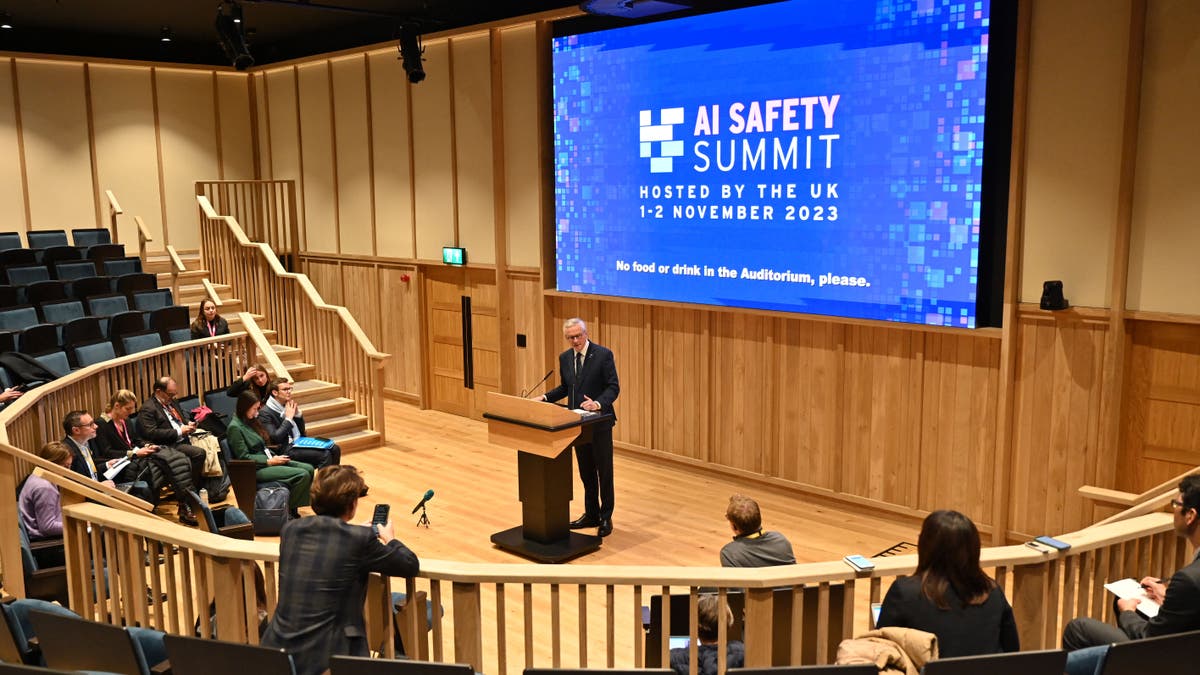GOP Rep. Gimenez presses FBI chief on TikTok, artificial intelligence as national security threats
Rep. Carlos Gimenez grilled FBI Director Christopher Wray on AI and China during a hearing held by the House Select Committee on China. (House of Representatives)
The U.S.-China dynamic has left Washington on the back foot in any effort to hash out an artificial intelligence deal with Beijing, even after Chinese officials indicated their willingness for talks.
"Whatever China wants is almost certainly not in the interest of either the United States or the international community," Gordon Chang, a senior fellow at the Gatestone Institute and an expert on China, wrote in an analysis on the issue.
"The risk is that, in another unenforceable agreement, the United States will forego employing critical advantages that AI affords in targeting conventional munitions," Chang argued.
The U.S. and China lead the global chase for AI development, with the U.S. possessing the most advanced chips used to train AI and providing a clear advantage over its rivals, according to Axios.
HOW AI COULD MANIPULATE VOTERS AND UNDERMINE ELECTIONS THREATENING DEMOCRACY

President Biden meets with Chinese President Xi Jinping on the sidelines of the G-20 leaders' summit in Bali, Indonesia, on Nov. 14, 2022. (REUTERS/Kevin Lamarque/File Photo)
China agreed to work with the U.S. and the European Union (EU) after attending the AI safety summit in Bletchley Park in England. Shortly after, President Biden and Chinese President Xi Jinping held talks in San Francisco, during which the two leaders discussed AI, among other vital topics.
The growing sense is that the U.S. and China could circle around an agreement to help control the pace of AI development, but critics remain skeptical of such deals and the benefit to the U.S.
WHAT IS ARTIFICIAL INTELLIGENCE (AI)?
Chang told Fox News Digital any deal with China would ultimately prove "unenforceable" since any compliance would require the ability to monitor military software and tech, something neither country would likely agree to, even with an agreement to maintain military-to-military communications following the San Francisco meeting.
Chang also argued that "companies would argue that it was safe to cooperate with China since the two countries trusted each other enough to come to terms," but that would lead to tech flowing "from countries that have it to those that do not."

Visitors watch an AI robot performing calligraphy at the 2022 World Artificial Intelligence Conference in Shanghai on Sept. 1, 2022. (Fang Zhe/Xinhua via Getty Images)
In his analysis, Chang wrote that any deal would give China a necessary boost given that the U.S. would have little to gain from China due to its current and clear advantages, meaning Beijing would accelerate development and catch up while giving little in return.
Additionally, an agreement to cooperate with China on AI development could also see Beijing gain access to technology and information that it did not already possess, providing a boost in other areas unrelated to AI, Chang warned.
NEW COMPANY COULD AIM TO REPORTEDLY DETHRONE GOOGLE AS THE SEARCH KING
Nathan Picarsic, a senior fellow at the Foundation for Defense of Democracies with a focus on China policy, told Fox News Digital the issue came down to a lack of "leverage" over China and the continued need for market access for companies to succeed, even as the U.S. continues to wean itself from Beijing dependence.

French Minister for Economy, Finance, Industry and Digital Security Bruno Le Maire speaks at a press conference during the U.K. Artificial Intelligence (AI) Safety Summit at Bletchley Park in central England on Nov. 2, 2023. (Justin Tallis/AFP via Getty Images)
"We don't have any leverage, and part and parcel of not having leverage, particularly as it concerns commercial approaches to artificial intelligence, is that we don't have reciprocity in market access and interaction in the Chinese market," Picarsic asserted.
Without that leverage, he argued, "There's no way for us to police or enforce what's going on in the Chinese domestic market, and our commercial actors, who are the ones at the cutting edge of artificial intelligence… if they have leverage, they’re incentivized to trade it in exchange for market access."
CLICK HERE TO GET THE FOX NEWS APP
He also pointed to other advantages China has over the U.S., such as protected "asymmetric" data that is unavailable to other sources, and the ability to take any software advantage it could glean and apply it at scale, acting immediately upon it.
"I don’t think there’s a deal with China that makes sense," Picarsic insisted. "They’ve proven to be an unreliable partner, and their incentives and positioning here are disadvantageous in a way that we don’t get anything from a deal."










































